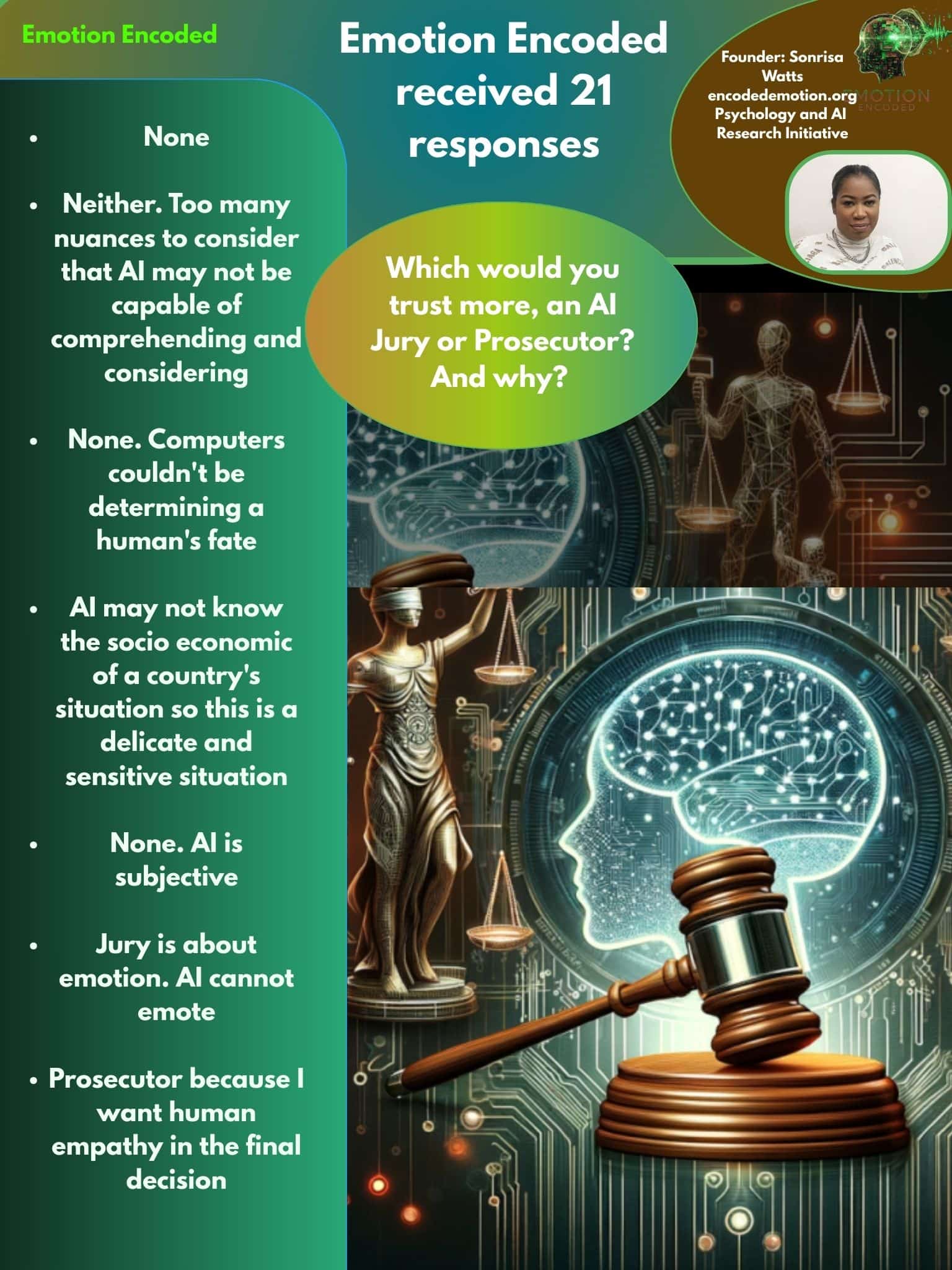AI on the Stand: The Public's Verdict on AI Juries and Prosecutors

The concept of AI in the justice system is a common theme in science fiction. But as AI becomes more integrated into our daily lives, Emotion Encoded wanted to find out what people truly think. We asked 21 participants a pointed question: "Which did you choose: an AI jury or an AI prosecutor? And why?" The responses reveal that when it comes to the legal system, trust in AI is not just a question of capability, but of human nature itself.
The Case Against AI in the Courtroom
The most striking finding was the overwhelming rejection of both options. The majority of respondents chose "None" or "Neither." Their reasons were clear and consistent, circling back to one central idea: the essential need for human empathy and understanding. Comments like "Too many nuances to consider that AI may not be capable of comprehending" and "Jury is about emotion. AI cannot emote" highlight a deep-seated belief that AI lacks the capacity to handle the complexities of human life and a defendant's fate. This reflects a profound algorithm aversion, a hesitation to trust even a seemingly accurate output when the process lacks transparency and human connection.
A Strategic Choice
While most rejected AI entirely, the few who chose one side provided the most revealing insights. One participant selected the AI prosecutor, not out of faith in the technology, but because they hoped to face a human jury. Their reasoning was, "I want human empathy in the final decision." This shows a strategic view of AI not as a replacement, but as a potential tool to manipulate the legal process in their favor. It suggests that while people may not trust AI to judge them, they might trust it to be a less formidable adversary in court.
The public's verdict is clear: we are not yet ready to hand over the scales of justice to artificial intelligence. While AI can assist with research and administrative tasks, our survey indicates a deep-seated belief that the courtroom belongs to humans, where empathy, nuance, and an understanding of socioeconomic factors are paramount.